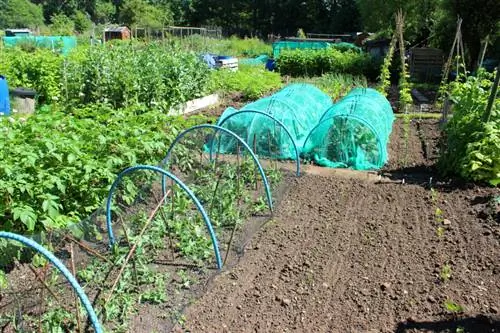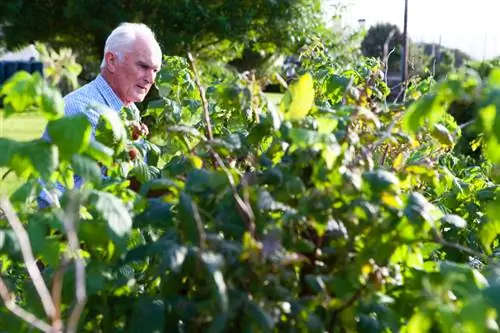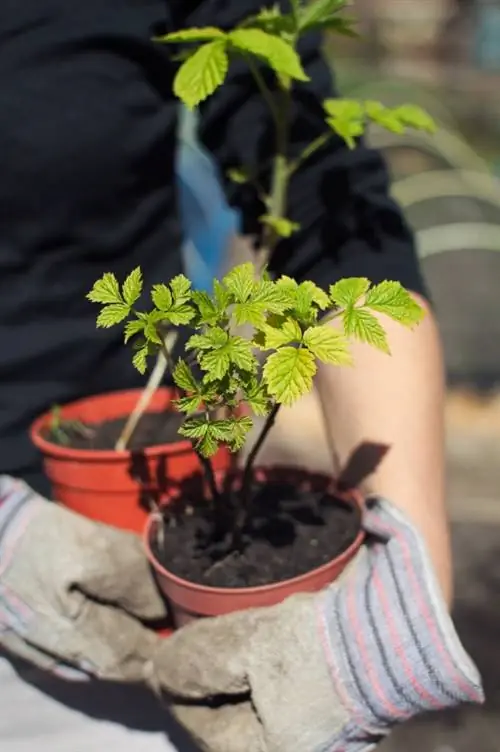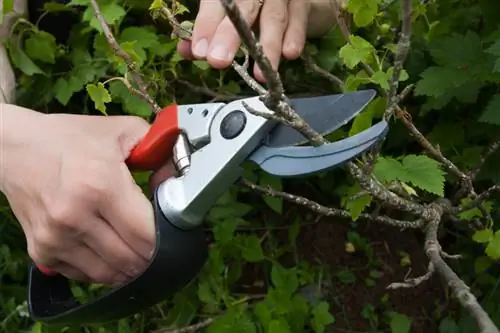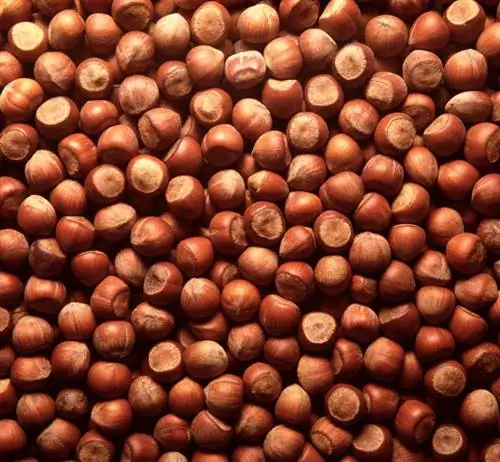- Author admin [email protected].
- Public 2023-12-16 16:46.
- Last modified 2025-01-23 11:19.
Raspberries have a reputation for being undemanding and frugal. However, you should create ideal soil conditions if you want to reap a rich harvest. How to ensure the right soil for your raspberries.
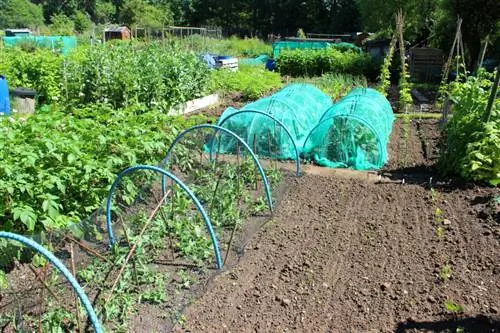
Which soil is ideal for raspberries?
The ideal soil for raspberries is nutritious, humus-rich, loose and permeable. To create this soil, loosen the soil, remove thickenings, keep it free of weeds and incorporate compost, manure or peat. Sand can help improve dense soils.
The ideal soil for raspberries
Even though raspberries grow on nutrient-poor soil, you should ensure there is enough nutrients and permeability.
A nutritious, humus-rich soil guarantees that the plants become stronger and the harvest is more plentiful.
Loose soil prevents the raspberries from suffering from root diseases or cane disease. Waterlogging cannot form on soil that is well loosened and free of stones and thickenings.
How to optimally prepare the soil:
- Loose the soil
- Remove thickenings
- Keep weed free
- Refine dense soils with sand
- Incorporate compost, manure or peat
Improving heavy soils
Raspberries do not grow well in very heavy, dense soils. Loosen the soil thoroughly before planting the shrubs.
If necessary, mix fine sand into the soil. This makes the soil much looser. Mature compost or rotted manure are also good for loosening up.
You should completely remove stones, old root residues and other thickenings before planting the raspberries. They form barriers in the ground through which rainwater cannot drain away. This causes water to build up during heavy rainfall and damage the roots.
Fertilize and mulch raspberries
If you want to harvest a lot of raspberries, you should fertilize raspberries twice a year. Placing a layer of mulch has also proven to be effective in improving the condition of the soil and providing the bushes with enough nutrients.
Mulching the raspberry bed also ensures that the soil surface does not harden. In dry conditions, a layer of bark mulch (€14.00 on Amazon), grass, leaves or straw prevents the moisture from evaporating.
The mulch cover also ensures that the space under the bushes remains weed-free. This is particularly important for summer raspberries, as weeds promote the development of cane disease.
Tips & Tricks
You can create ideal soil conditions if you grow your raspberries on a hilly bed. The structure of the bed ensures that rainwater can drain away easily and no waterlogging occurs.

